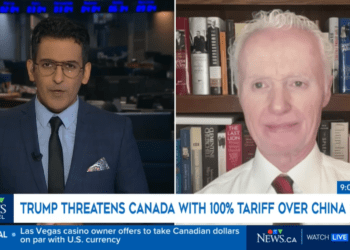This article was originally published in a collected volume, Canada’s Governance Crisis, which outlines Canada’s policy paralysis across a wide range of government priorities. Read the full paper here.
By Ken Coates, October 2, 2023
In an era of a mounting number of interconnected complex and difficult problems, one feels sorry for the politicians and civil servants attempting to produce policies, programs, and funding that will make real and sustained progress. We are often confronted with the frightening realization that government, as it is currently structured and directed, is simply not up to the challenges of the 21st century. This is certainly the case with Indigenous affairs in Canada, where the federal government struggles to find the right path forward.
The socio-economic data is clear. Indigenous peoples lag well behind the non-Indigenous population on almost all measures: personal income, access to clean water, educational outcomes, rates of incarceration, health outcomes, opioid deaths, tuberculosis cases, overcrowded homes, and many others. Language loss is endemic, many communities struggle with intergenerational conflict, too many cultural traditions are at risk, and long-term systemic poverty continues to take its toll.
Most Canadians think that the government of Canada is doing a great deal – some people think too much – to address Indigenous challenges and opportunities. They point, as the government often does, to billions of dollars in annual expenditures, formal and public apologies, major court judgments in favour of Indigenous defendants, a seat at a growing number of political tables, and concessions on language, values, and priorities.
The juxtaposition of these two realities is troubling – despite the massive expenditures on Indigenous affairs there are continued and major shortcomings in First Nations, Métis, and Inuit outcomes and achievements. Frustration burns deep in many Indigenous communities, as it does among the general population. Canadians at large have heard the many apologies, hundreds of program announcements, billions in spending, and the near-constant uncertainty of legal processes, and they too are deeply concerned about the failure of decades of concerted government efforts to make things better.
Of course, there have been major achievements. While media coverage focuses on conflict and despair, First Nations, Inuit, and Métis communities have made substantial improvements, even with the current difficulties in mind. Post-secondary attendance remains strong, with continuing challenges with the high school to PSE transition. Indigenous entrepreneurship is a bright spot in the Canadian economy. Modern treaties and self-government agreements are changing how the government manages Indigenous policies, funding, and decision-making. And impact and benefit agreements have secured Indigenous communities an important place in resource and infrastructure development.
But frustrations with the government of Canada’s management of Indigenous affairs continues. Communities complain of long-delayed negotiations, difficulties with payments, the omnipresent influence of the Indian Act, files lingering on the desk of the Minister of Indigenous Services Canada, the inability to get promised money out the door quickly and efficiently, the imposition of complicated accountability provisions, and many other problems. Even major settlements, like the $40 billion allocated to address shortcomings in child and family services, has been bogged down in unrewarding negotiations.
The failures of governance on Indigenous affairs represents an unhappy situation where the problem is, simultaneously, too much government and too little governance. Starting well before Confederation, paternalism became the hallmark of federal policy towards Indigenous peoples. Government officials believed that they knew best and managed Indigenous affairs with scant consideration of Indigenous ideas and goals – and often with a firm, manipulative hand. To the degree that Indigenous peoples escaped the dominance of Ottawa, it was largely due to the shortage of government workers and money, which meant that most northern peoples were left largely alone until the 1950s.
In the 1950s and 1960s, in a massive wave of self-justified paternalism, government intervention expanded rapidly. Indigenous peoples were required to live in government-established and run settlements, typically in government-built houses and under the control of a growing cadre of paternalistic Indian Agents. Residential and day school education became standard fare – as did acute language loss and the disruption of harvesting activity and traditional cultures. Welfare dependency, extremely rare before the mid-1950s, replaced harvesting and the mixed economy as the economic foundations of Indigenous life, with all of the controls and intrusions that attend any reliance on government cheques.
Well-meaning state officials inherited the paternalism of their predecessors, believing that government-designed and -run programs would provide Indigenous communities with pathways to the mainstream economy and the benefits of the dominant society. A few achievements stand out, but generally the effort did not work. Indigenous communities were transformed into frustrated supplicants, relying on a steady stream of applications and approval processes to provide what were typically short-term grants that would fund core community operations.
The arrangements prioritized federal budget-making and administration over Indigenous decision-making and community priority-setting. The budgets grew dramatically. Federal officials made countless announcements. The number of federal civil servants grew dramatically. And individual Indigenous people continued to suffer. Through decades in which state funding and programming continued to expand, the gap between Indigenous well-being and non-Indigenous social and economic conditions scarcely narrowed at all. What did grow dramatically was social dysfunction, self-harm, and family disarray.
It turned out that too much government “help” could be as bad as neglect and inattention to Indigenous needs. Ottawa continued to supply earnest and well-meant programs, but they were built with diminishing enthusiasm from Indigenous peoples. First Nations, Métis, and Inuit communities understood what the government of Canada did not: that community control was much more important and effective than Ottawa-centred policy-making. Much of the Indigenous effort since the 1970s has focused on righting the imbalance, establishing more self-government processes, expanding own-source revenues, and returning to Indigenous peoples the autonomy that had sustained them for centuries.
Indigenous peoples have their own agendas – and they have largely succeeded in changing the core foundations of Indigenous governance in Canada. Modern treaties have, for some people, eliminated some of the more pernicious aspects of the Indian Act and its associated bureaucracies. Self-governing First Nations are become more common and increasingly successful. The Inuit secured their own territory – Nunavut – and acquired considerable autonomy in Labrador and northern Quebec. Impact and benefit agreements and resource revenue sharing have given communities the funding they require to establish their own spending priorities. Duty-to-consult and accommodate provisions have given Indigenous communities a major role in determining the shape and nature of resource development. Major Supreme Court of Canada decisions continue to extend Indigenous authority.
This story of Indigenous re-empowerment has not yet fully unfolded, although the returns to date have been more than promising. Self-governing First Nations in the Canadian North and elsewhere have used their autonomy to very good effect. Communities near the oil sands in Alberta have used their involvement in resource extraction to create substantial autonomy for themselves. Near-urban and urban First Nations are supporting metropolitan redevelopment. Joint ventures and economic cooperation have become the norm rather than the exception. Struggles continue; generations of paternalism and government oversight are not overcome in a flash.
But the primary lesson is simple. State paternalism has been a force for disruption and manipulation of Indigenous communities. Re-empowerment, autonomy, and economic independence have demonstrated the potential to rebuild, enhance, and strengthen First Nations, Métis, and Inuit communities. Decades of government mismanagement of Indigenous affairs must be put in the rear-view mirror. It is time for the re-empowerment of Indigenous communities to become the new normal.
Indigenous realities have changed dramatically, particularly related to Indigenous rights, expectations, capacity, financial settlements and community expectations. Government administration and policy-making, as current constituted, is not sufficiently community-centric, properly funded, appropriately responsive or driven by Indigenous imperatives. Despite generations of large-scale spending and many programs and announcements, basic conditions are far too often seriously substandard and real progress slow and unimpressive. With Indigenous people and their governments in the forefront, Indigenous governance and support requires a dramatic rethinking and Indigenous empowerment in order to respond properly to the challenges and opportunities of the 21st century.
Ken Coates is a Distinguished Fellow and Director of Indigenous Affairs at the Macdonald-Laurier Institute and a Professor of Indigenous Governance at Yukon University






